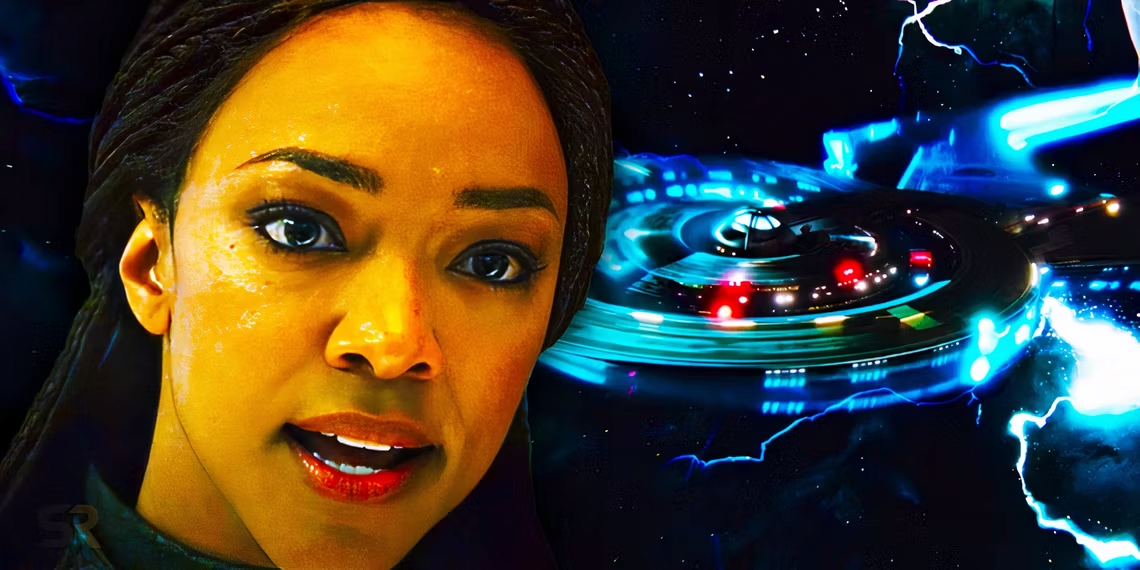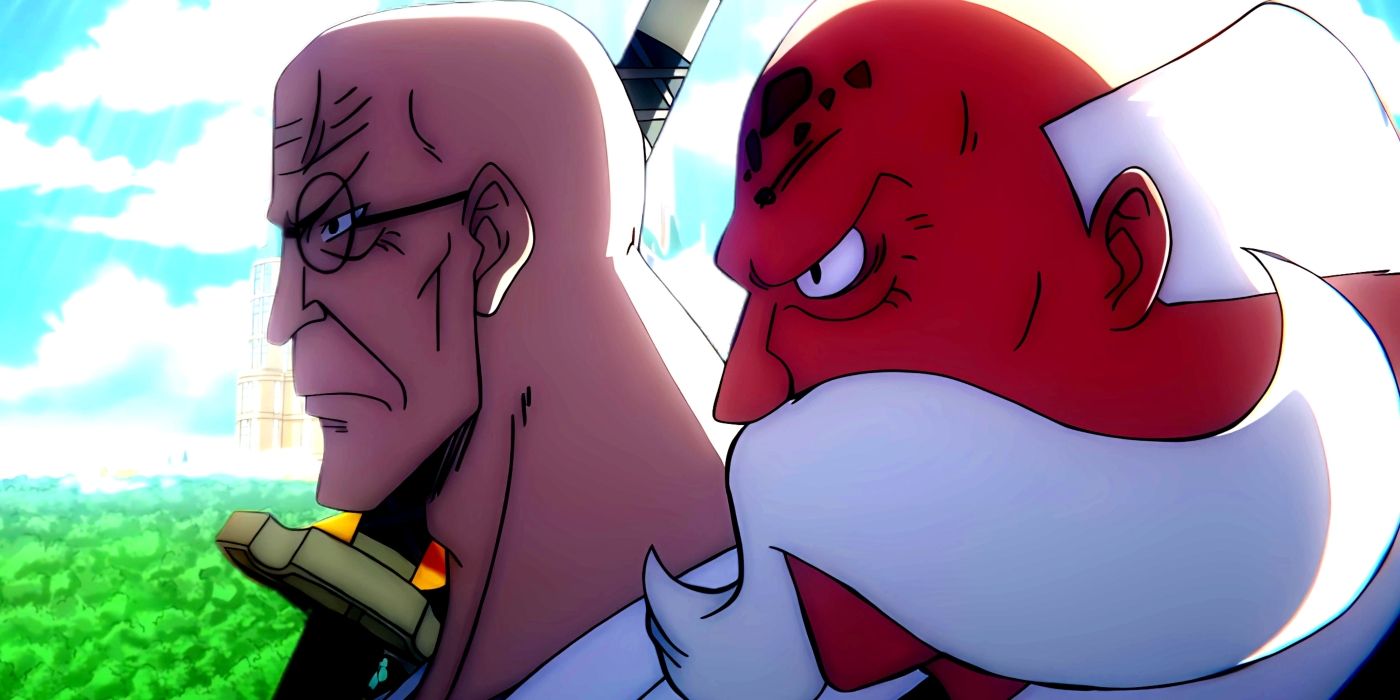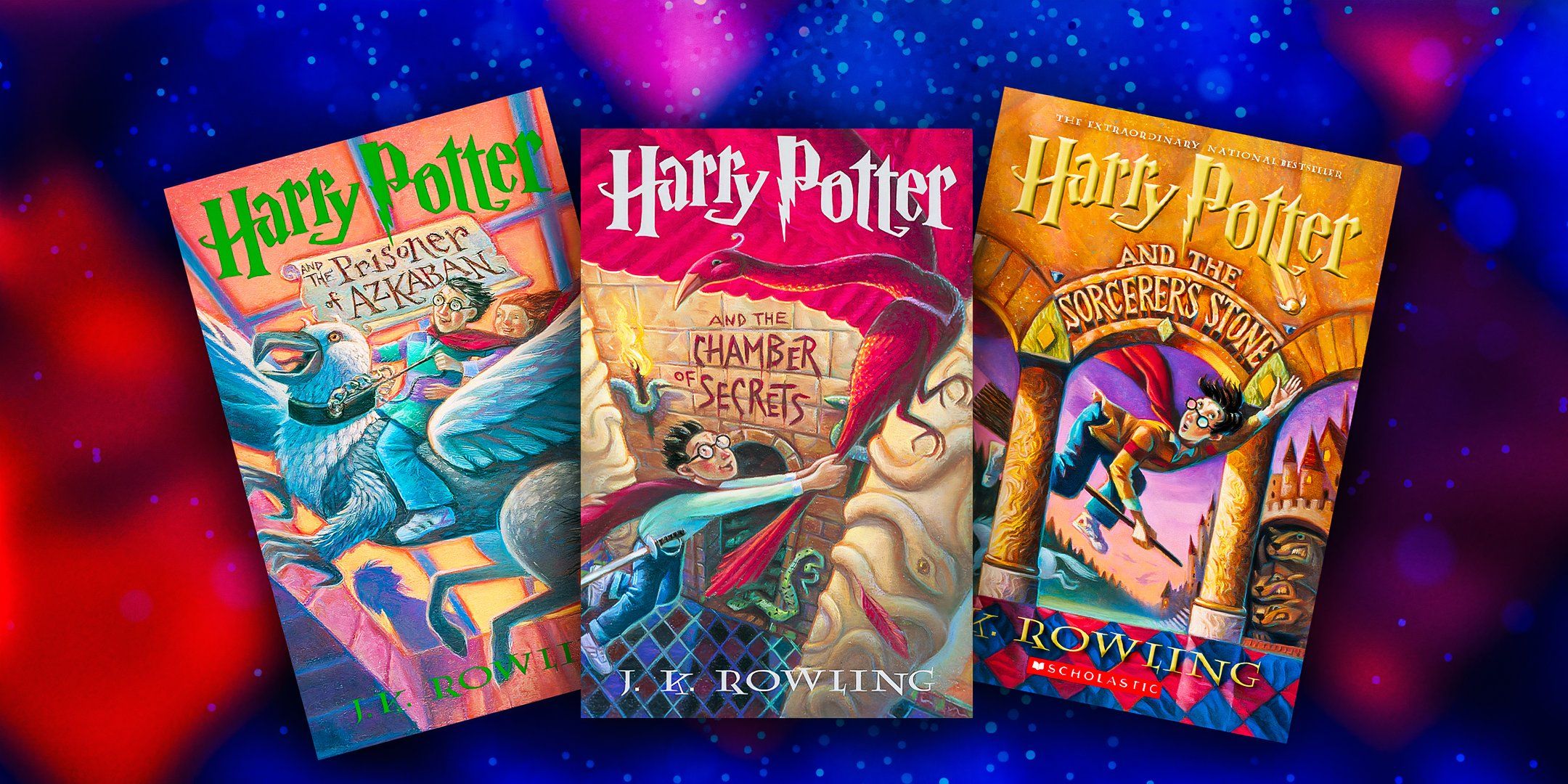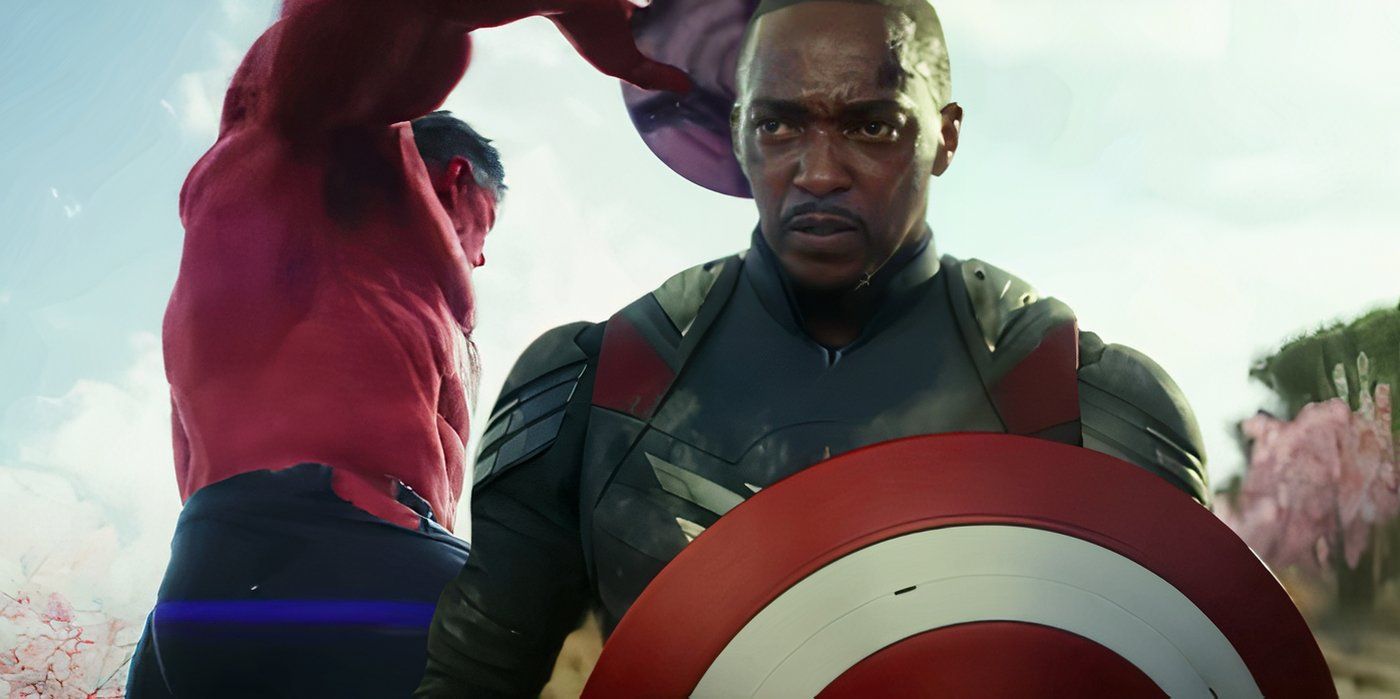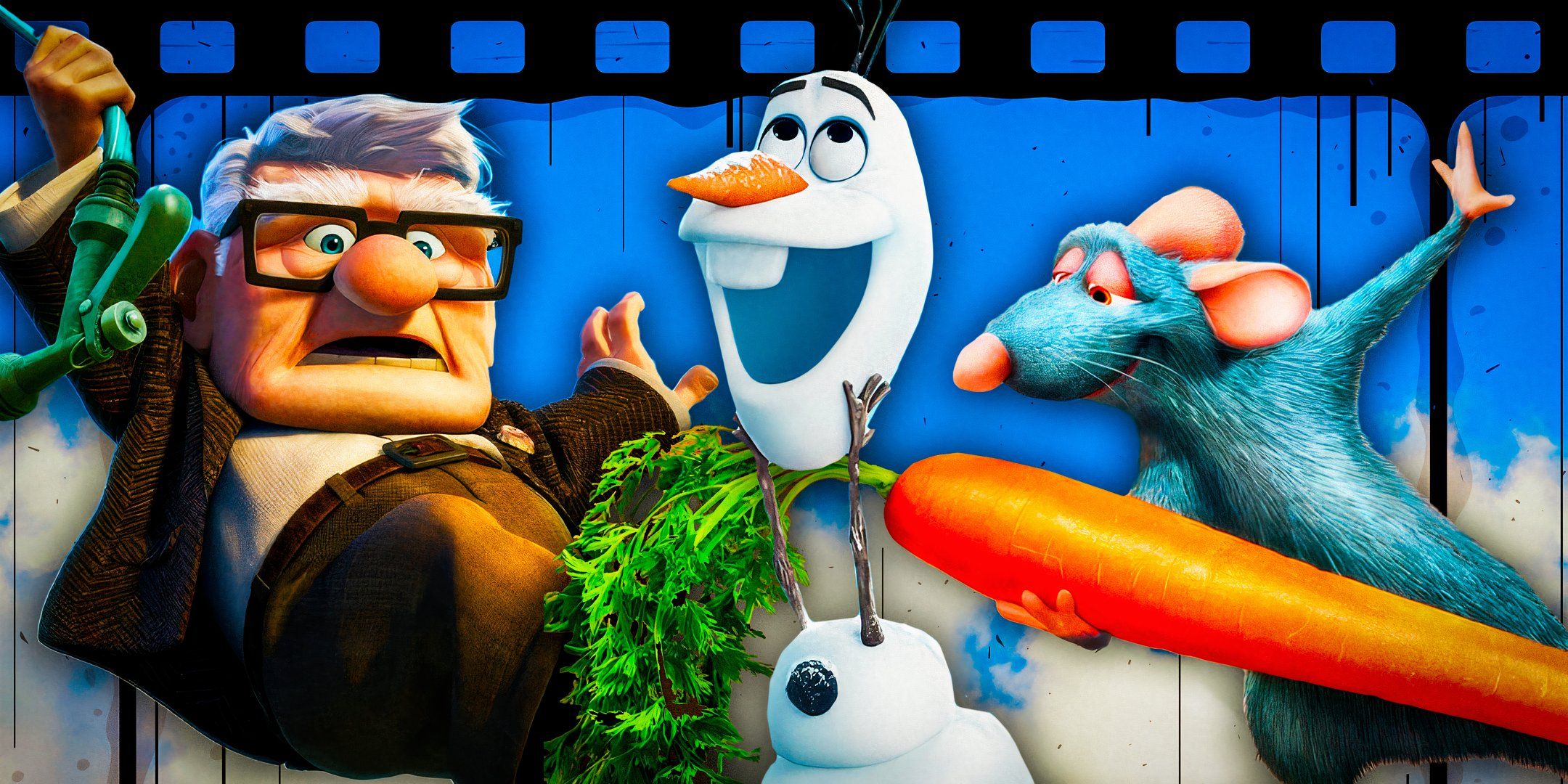Warning: contains spoilers for The Variants #2!
When it comes to female superheroes, Jessica Jones is not usually the first who comes to mind. She’s not as flashy as She-Hulk or Captain Marvel. Apart from her stint as Jewel, Jess foregoes the traditional cape and tights, instead opting for a leather jacket and cup of coffee. In Marvel’s The Variants, Jessica Jones provides an insightful commentary on the current state of vigilantism and what it means to be a woman in that context.
The Variants takes place ten years after Jones was under the control of Kilgrave, A.K.A. the Purple Man. Now married to Luke Cage and with a daughter, Jessica is ready to put crimefighting behind her. Maria Snyder, Kilgrave’s first victim, accused of murdering her family, tries to explain in court that it wasn’t her. Jessica is unfortunately the only one who understands. What terrifies Jessica is the realization that 10 years to the day, despite Kilgrave being in a coma, Maria heard his voice again. With the 10-year anniversary of Jessica’s own horrific encounter with Kilgrave approaching, she tries to push aside her fears. Her time as a costumed hero will forever be tainted by him.
In The Variants #2, by Gail Simone and Phil Noto, Jessica Jones goes out on a coffee date/stakeout with Greer Nelson, A.K.A. Tigra. Dressed in a plunge top, Tigra’s accepted that, due to her appearance, people are always going to be staring at her, so she states that might as well give them a reason to stare. As they talk, Jones recalls a time when fellow hero Wasp rescued a child and all over the papers, the only thing reporters seemed to care about was her backside showing. Due to past experiences and her journey with trauma, it’s unsurprising that Jessica prefers to be more lowkey in her heroics now. Plus, she’s found that female PIs are at least slightly more respected than female superheroes. So, when Tigra asks Jess to join her on A-Force, an all-female team, she rejects the offer.
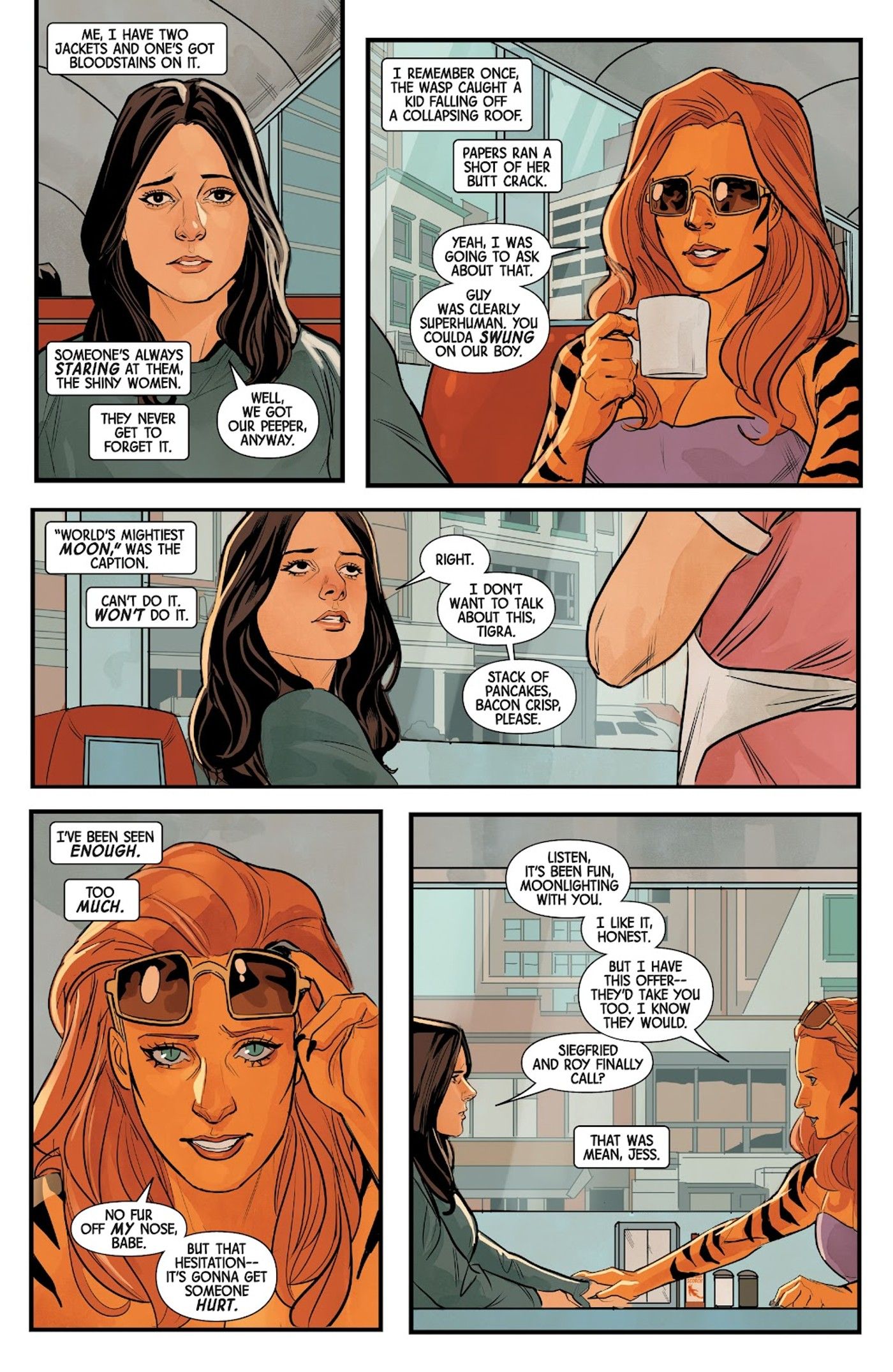
As a character who has faced a past of abuse and manipulation, it would be doing Jones a disservice to take advantage of her femininity and sexualize her. So often, female heroes are portrayed wearing skin-tight costumes and bearing far more skin than what should be plausible. Often, this undermines the heroics of these heroes, as seen with Wasp. Even if Jess were to join ex-Avenger, Tigra on A-Force, she knows that she’d be thrown into the spotlight. People wouldn’t simply thank them as heroes—they’d be objectified as female heroes.
In recent years, Marvel comics have improved their representation of female characters, giving them the stories that they deserve. Jessica Jones stands as a testament to that. In The Variants, Marvel reflects on its sexist past, providing hope for the continued efforts to improve comic book representation.
Variants #2 is now available from Marvel Comics digitally and in print!
